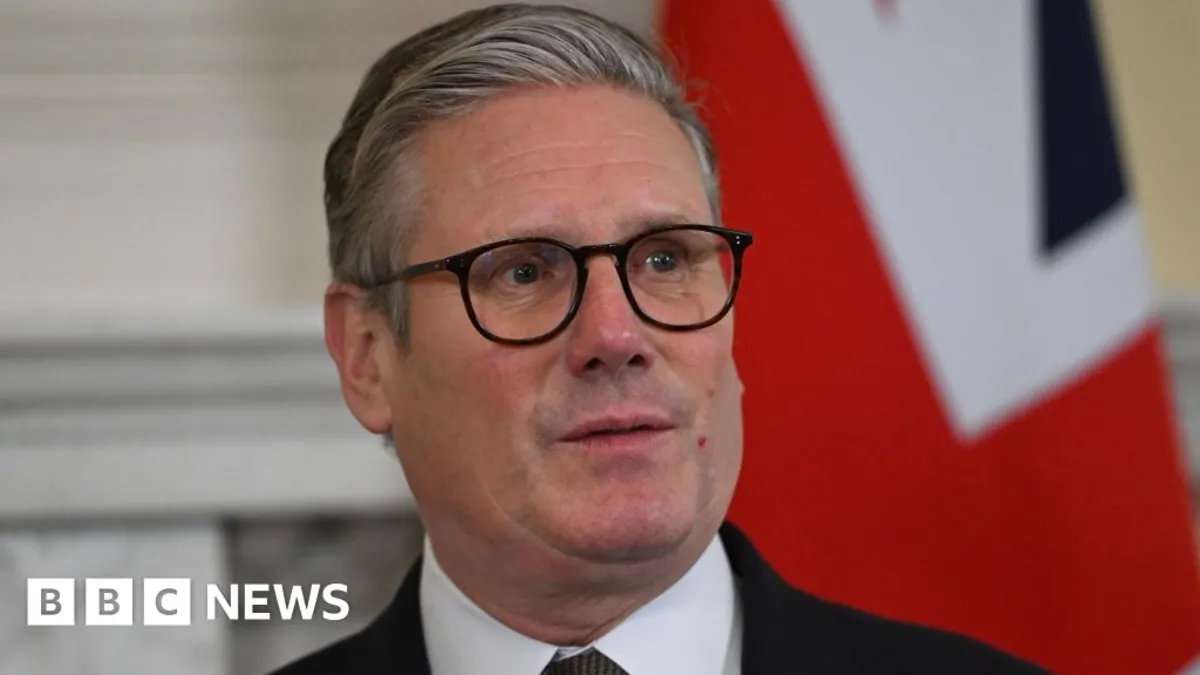
In a recent statement, Prime Minister Sir Keir Starmer expressed his readiness to employ industrial policy as a means to protect British businesses from the impending economic turmoil resulting from US President Donald Trump's new wave of tariffs. In an opinion piece published in the Sunday Telegraph, he emphasized the importance of seeking a viable trade deal with the US to mitigate some of the negative impacts of these tariffs, while also suggesting the need for state intervention to safeguard the national interest.
This week, the UK, along with several other nations, faced a significant challenge as a 10% baseline import duty was introduced. Moreover, UK car exports, as well as steel and aluminum products, are now subject to a steep 25% tariff. Starting April 9, many countries will be confronted with even higher tariffs, reaching up to 50%. Trump's assertion is that these interventions are designed to encourage US consumers to purchase more American-made goods, thereby boosting the domestic economy. However, the announcement has led to a significant decline in stock markets, falling more than 5% due to escalating fears of a global recession.
In light of these developments, Jaguar Land Rover announced over the weekend that it would pause all shipments to the US as it navigates the new trading conditions. Sir Keir Starmer indicated that the government is prepared to "turbocharge" plans aimed at enhancing the UK's domestic competitiveness, thereby minimizing exposure to such global economic shocks. He stated, "We stand ready to use industrial policy to help shelter British business from the storm."
While acknowledging that some may feel uneasy about government intervention in the economy, Sir Keir argued that clinging to outdated sentiments is not an option in a rapidly changing world. He has not dismissed the possibility of further tax increases in the autumn, though he noted that the government refrained from such measures in the recent Spring Statement. An industrial strategy promised in Labour's election manifesto is set to be unveiled this summer, with elements likely to be adapted to support UK firms in the current climate.
In the Telegraph, Sir Keir reiterated the government's commitment to maintaining calm while striving for the best possible trade deal with the US, stating that all options remain on the table. He emphasized, "I will only strike a deal if it is right for British business and the security of working people." Conservative leader Kemi Badenoch has urged the Prime Minister to pursue a deep and meaningful trade deal with the US that fosters growth without compromising on standards.
Last year, the UK exported nearly £60 billion worth of goods to the US, predominantly in machinery, cars, and pharmaceuticals. In response to the tariffs, the government has released a comprehensive 400-page list of US goods that could be included in any retaliatory tariff response. Business Secretary Jonathan Reynolds assured MPs that the government would engage with businesses to assess how these retaliatory tariffs may affect them. The list includes 27% of imports from the US, specifically chosen for their limited impact on the UK economy, as stated by the Department for Business and Trade.
In addition to addressing US tariffs, Sir Keir indicated that he would also work to reduce trade barriers with other economies, aiming to lessen the impact of US tariffs on UK exports. Over the weekend, he engaged in discussions with several world leaders, including a phone call with French President Emmanuel Macron. They concurred that a trade war is not in anyone's interest, though they acknowledged that no options should be ruled out.
As the situation unfolds, both Conservative and Liberal Democrat leaders warn that UK families and businesses will soon feel the consequences of the National Insurance hike for employers that comes into effect today.